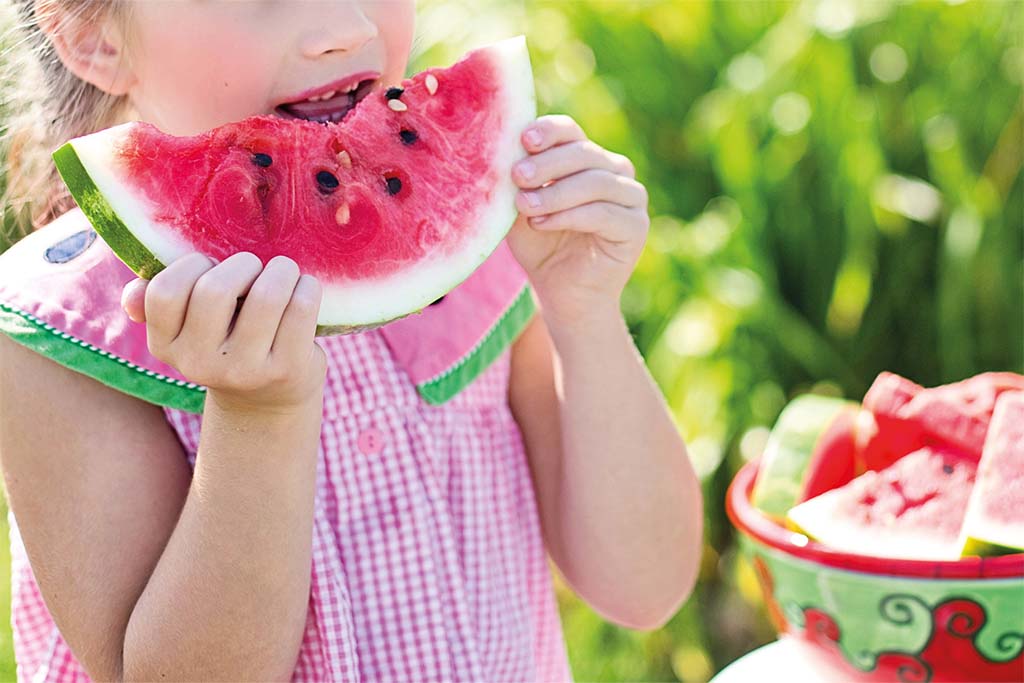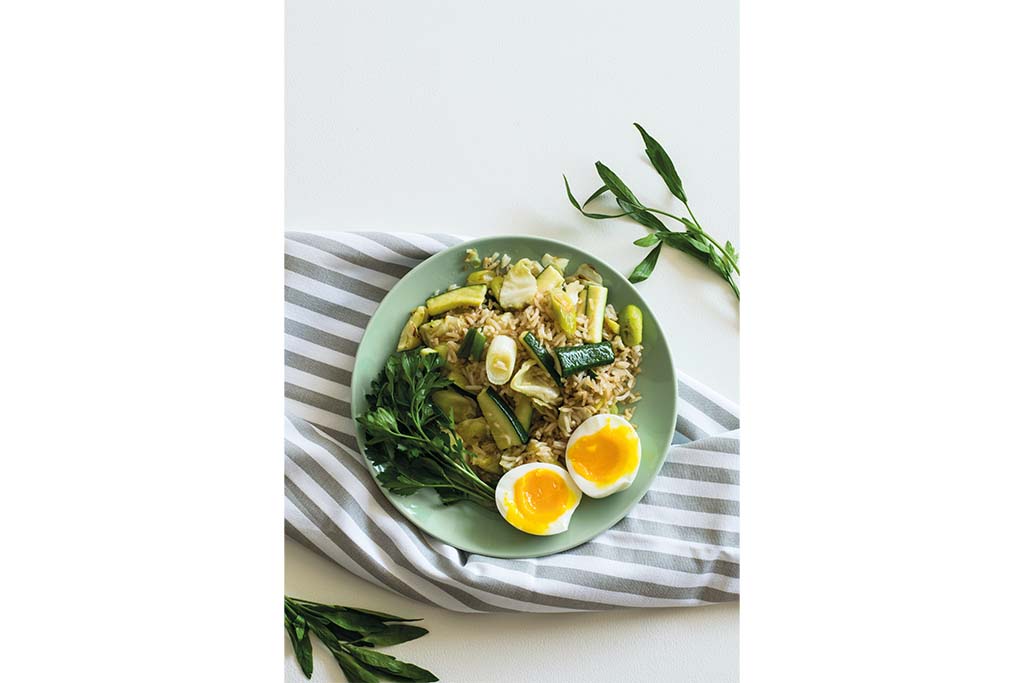Food for Thought
By
4 years ago

Mental health campaigner Rachel Kelly reviews the science of nutritional psychiatry for happier, better-adjusted kids

As the drama of the pandemic recedes many parents are grappling with a new fear, latent for some time but now rising to the fore as other worries recede: the ‘tsunami’ or ‘tidal wave’ of mental health problems among young people. Studies vindicate parents’ concern, although the response of young people to the pandemic has varied widely. It does depends on their socio-economic background: unsurprisingly, richer children have fared better.
One small 2020 study of 168 children (on average aged ten) in the east of England found an increase in depressive symptoms.1 Research by Professor Viner at UCL published in March 2021, analysing data globally, also concluded that children were showing higher levels of anxiety and depression when schools were closed.2
The deteriorating mental health of young people predates Covid, says Dr Jamie Arkell, a Consultant Psychiatrist at the Nightingale Hospital in London. The decline started with the appearance of social media about ten years ago but as children return to school in force, the vulnerable will be in need of some real help.
Clinical psychologist Dr Carla Croft, who works for several London hospitals including Barts Health NHS Trust says: ‘We are expecting 20 to 30 per cent at least of these children to have some form of diagnosable problem.’ Anxiety and depression are among the most common mental health problems anticipated among schoolchildren.
She says it is vital to give them what they need in a time described by psychologists as the ‘recovery’ and ‘restoration’ phases after trauma. ‘They need opportunities to make sense of what has happened to them and then time to reconnect with their peer group and the systems outside their homes.’
One key approach to helping vulnerable children is to connect them with the right networks of supportive mental health professionals, as well as sporting, cultural, religious and musical networks which research suggests protect young people’s mental health. Another approach, and one that parents can help with, is to focus as much on their children’s physical health as their psychological wellbeing.
While we all know the importance of exercise, a new approach is to harness the power of food to maximise our mental health and that of our children. Research is gathering pace in this emerging field of ‘nutritional psychiatry’. As around 90 per cent of our serotonin (the hormone that helps us feel happy) is created in our gut, it makes sense that what we eat can alter our brain chemistry.
Last June, a study confirmed that oily fish really does improve mood if you are depressed. Research published in Molecular Psychiatry found that when patients with depression were given omega-3s – the healthy fats found in oily fish – they are metabolised into molecules called lipid mediators.3 Levels of these in the blood are linked to an improvement in symptoms.
My own research in this area began when my GP recommended oily fish as one of three ‘happy foods’ about six years ago (the other two were dark chocolate – yum – and dark green, leafy vegetables – not so). I learnt that the relationship between mental health and inflammation was first brought to light in 1887 by psychiatrist Julius Wagner-Jauregg, who noticed the effect of fever on psychoses. Since then, new research continues to find that inflammation in both brain and body – including the gut – can affect our mood. An elevated level of cytokines – small proteins found in our cells – has been linked with depression, known as the ‘Cytokine Hypothesis’.4 How then, could I prevent my digestive tract from becoming inflamed? And help my children too?
I had had a long-standing battle with severe depression and was literally hungry for any new approach, one answer seemed to be to adopt an anti-inflammatory diet which prioritises good digestive health. I contacted Alice Mackintosh, a nutritional therapist working for a nutritional clinic on London’s Harley Street with degrees in both nutritional therapy and biomedical sciences. With her help, and advice from other doctors, dieticians, and psychiatrists, I began to overhaul my diet completely, and focused on supporting a healthy gut.
I learnt that one way to reduce inflammation is to encourage healthy bacteria to flourish in our digestive systems. It is thought that an increase in the levels of unhelpful or ‘bad’ bacteria that emit chemicals can compromise the lining of the intestine, leading to a self-explanatory condition known as increased intestinal permeability, or ‘leaky gut’.
This might allow some germs, toxins and small undigested food particles into the blood, leading to inflammation, intolerances and oxidative stress, Mackintosh explains. However, this theory has not been conclusively proved and more research is necessary. There may also be a link between the bacteria in our digestive systems and anxiety.

To nourish my gut flora, I increased the amount of probiotics and fermented foods I ate. A modest portion of creamy yoghurt so thick it stands up in the bowl suits me well. Women given yoghurt containing probiotics were found to have a calmer response to certain stimuli, according to a 2013 study reported in Gastroenterology.5
Equally as important was avoiding antibiotics unless absolutely needed, as well as alcohol, fatty cuts of meat, gluten, burnt food and processed foods. And when it comes to anxiety, sugary foods are like a match to petrol as they contribute to mood swings.
By contrast, we and our children need to eat more anti-inflammatory herbs, spices, whole-grains and colourful fruit and vegetables rich in antioxidants. Combined evidence from several recent studies, found that, in general, omega-3s were effective in improving depressive symptoms in both patients diagnosed with depression and depressed patients with undiagnosed depression.
Given the evidence, I now aim for three portions per week of oily fish such as tuna, herring, salmon and mackerel for family meals, and plenty of bowls of walnuts (which helpfully look a bit like a brain) as snacks on the kitchen table if your children are vegan or vegetarian.
Understanding the links between staying calm and a healthy microbiome have changed my life and have helped my children to stay calm and well too. Alice gave me practical tools in the form of meal planners, and we began to develop recipes for my symptoms. Our conversations and experiments led to our book, called The Happy Kitchen: Good Mood Food which is based on more than 150 nutritional studies. In it, I share in detail how I have learnt to stay calm and well through what I eat, and how this approach has helped my five children. The book includes anti-inflammatory recipes like Flaxseed Pancakes and Salmon Kedgeree that are now staple family favourites.
Anti-inflammatory food has made me and my family calmer, less anxious and clearer thinking. Food became my medicine and that of my family’s, part of a toolbox to stay well. It is not the only thing we need to help our children’s mental health, clearly. But it’s a prescription I take seriously, and one that parents might wish to adopt for their children too as they negotiate the challenging months ahead.
The Happy Kitchen: Good Mood Food by Rachel Kelly. Rachel-Kelly.net
Food for Thought: The Science
1 thelancet.com/journals/lanpsy/article/PIIS2215-0366(20)30570-8/fulltext
2 ucl.ac.uk/news/headlines/2021/mar/school-closures-risk-permanent-scarring-children
3 kcl.ac.uk/news/new-insight-into-how-anti-inflammatory-effects-of-omega-3-fatty-acids-could-help-reduce-depression
4 pubmed.ncbi.nlm.nih.gov/15694227/
5 pubmed.ncbi.nlm.nih.gov/23474283/
READ MORE FROM AUTUMN/WINTER 2021
Press Reset: Queen of Retreats | Best of Intrepid Explorers



